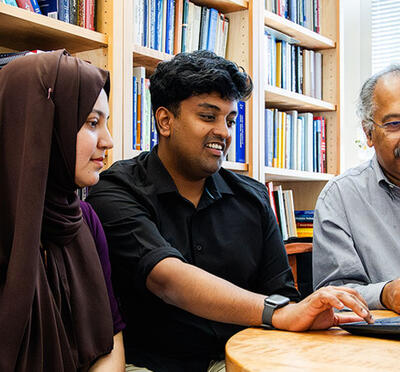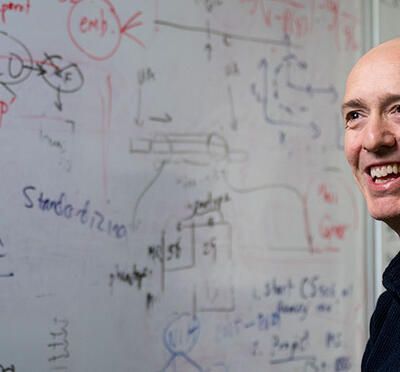Air travel can be made safer with artificial intelligence guarding against human error. That’s the vision of Andrew Dassonville, an engineering senior at Oregon State University, who recently took second place in a national airport design competition.
Human error is the leading cause of commercial airline crashes and general aviation accidents, according to the Federal Aviation Administration. Dassonville, who studies computer science and robotics, zeroed in on radio communications as one source of human error where AI can provide a critical safety check.

Dassonville was awarded second place in the runway safety category at the 2022 ACRP University Design Competition, which challenges students to create innovative solutions for issues facing airports and the National Airspace System. The competition is sponsored by the Airport Cooperative Research Program, part of the National Academies of Sciences, Engineering, and Medicine’s Transportation Research Board.
In Dassonville’s design, an artificial intelligence-based system constantly “listens in” on radio exchanges between pilots and air traffic controllers, looking for discrepancies in communication, such as readback errors. Suppose, for example, a controller instructs aircraft ABC to climb and maintain 8,000 feet, but the pilot reads back 9,000 feet. The eavesdropping AI would catch the error and avert potential disaster.
“This system is capable of identifying that discrepancy and would alert the controller that the
aircraft might not be doing what they’re expecting,” Dassonville said.
Dassonville, an avid pilot who discovered his passion for flying though the Oregon State Flying Club, saw the competition as a perfect overlap of his interests in aviation and computer science.
“As a pilot, safety is always on your mind, and you’re taking on some risk whenever you take off,” Dassonville said. “Being able to use my skills that I’ve learned at Oregon State through computer science in order to help mitigate risks in aviation is pretty cool.”
Kiri Wagstaff, associate research professor of computer science at Oregon State, advised Dassonville on the project.
“Andrew is an outstanding student and pilot,” Wagstaff said. “As a pilot myself, I’m very excited about Andrew’s concept, and I have thoroughly enjoyed discussing AI, flying adventures, and flight training with him.”
After graduating, Dassonville plans on a career that involves aviation.
“I’d love a career that combines computer science, robotics, and aviation,” he said. “It could be something that involves self-flying planes, autopilot technologies, or aviation instruments.”



Some of the reasons Andrew Dassonville loves being a pilot.


